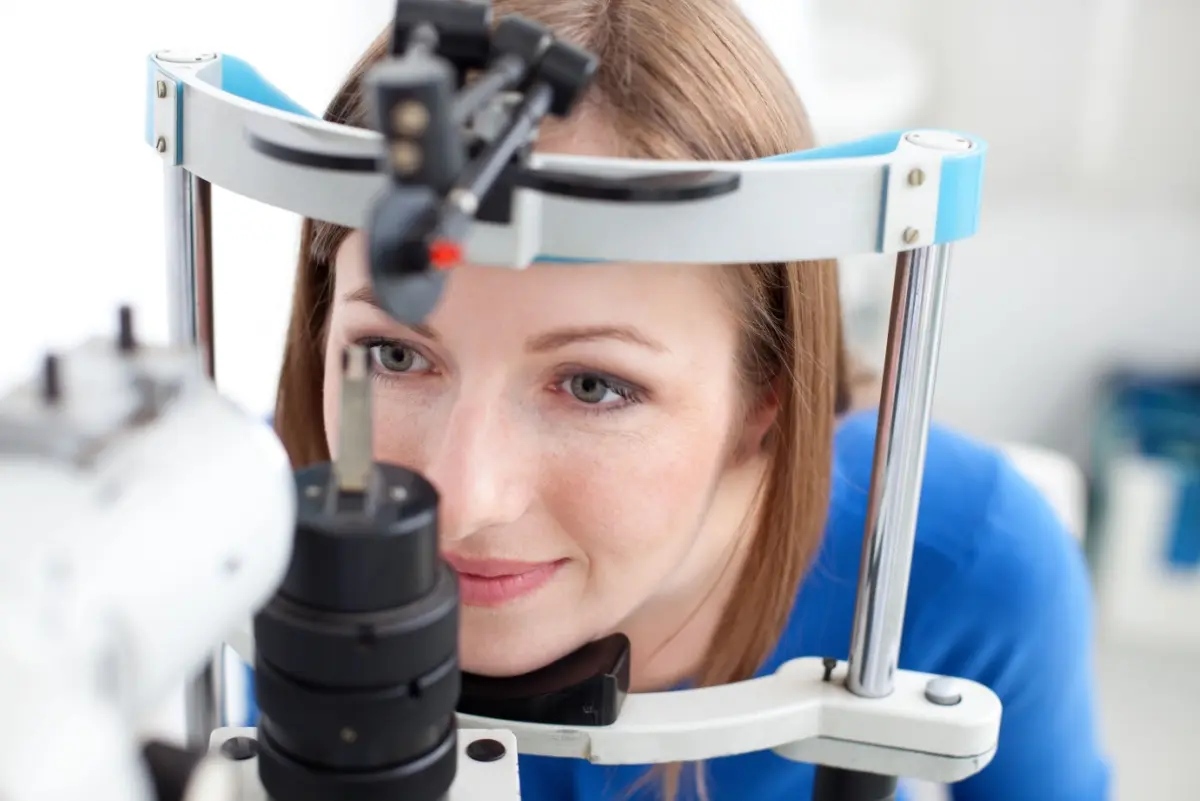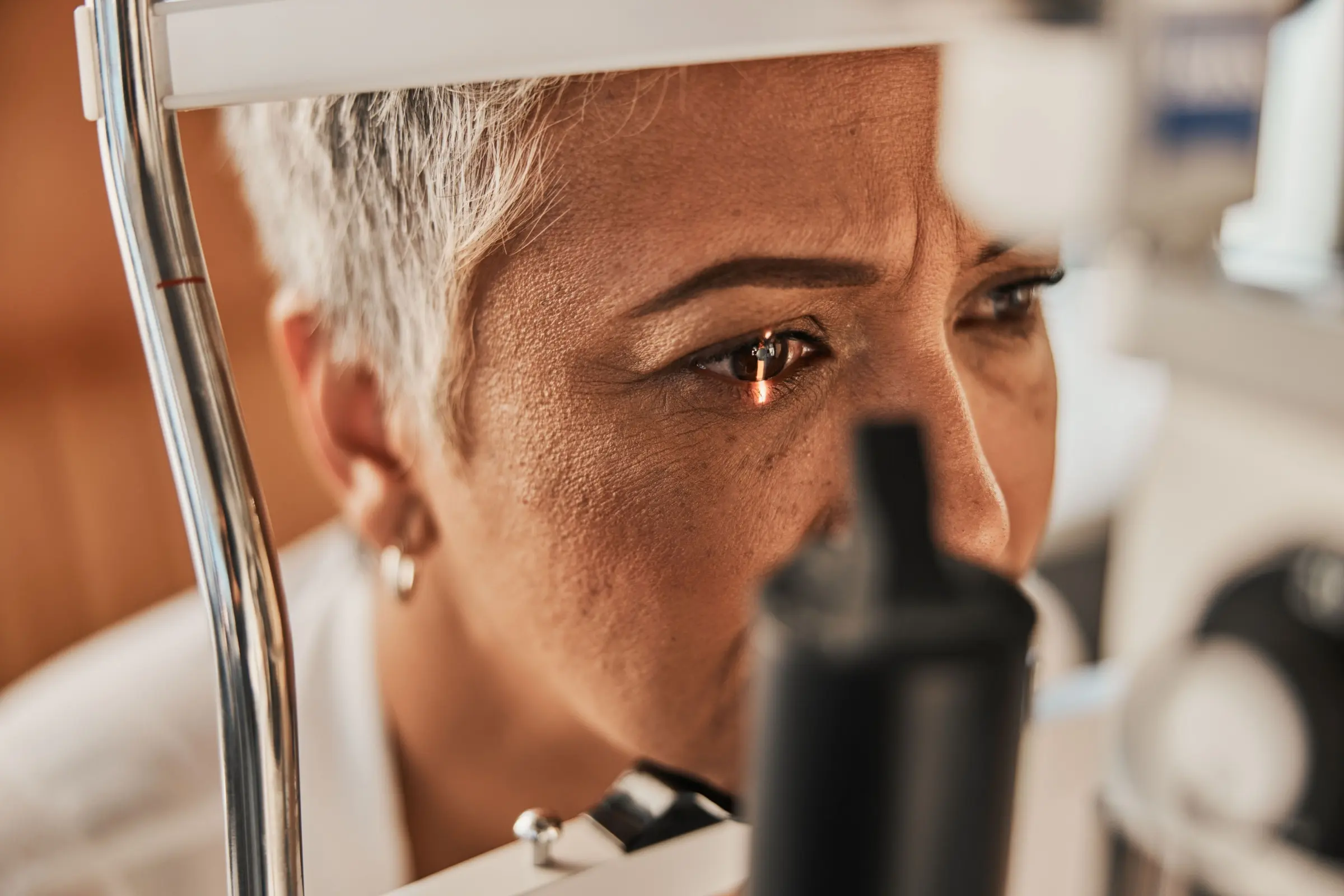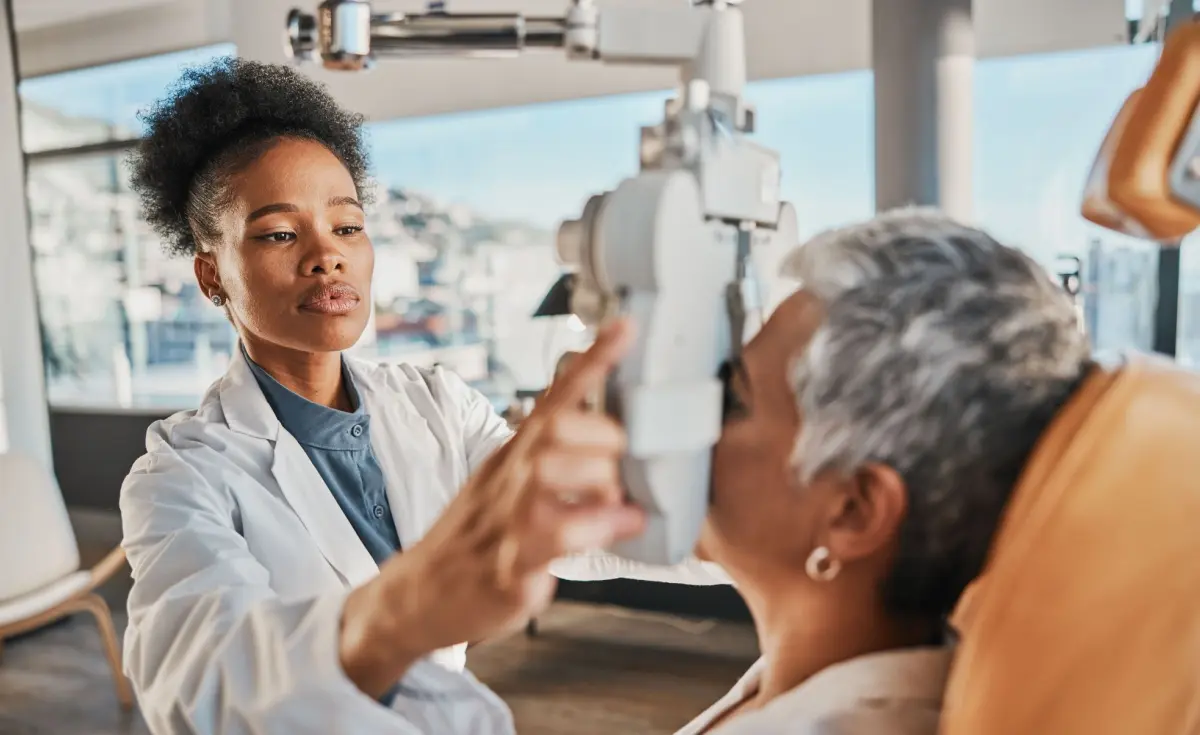At Southern Eye Group, Dr. Danielle Isen specializes in neuro-ophthalmology, providing expert care for complex visual disorders. Serving patients from the Gulf Coast of Alabama, Mississippi, and beyond, Dr. Isen practices out of our West Mobile, Alabama office. Our team is dedicated to diagnosing and managing conditions that affect the connection between the eyes and the brain.
- What is Neuro-Ophthalmology?
- What is the Difference Between an Ophthalmologist and a Neuro-Ophthalmologist?
- What Conditions Does a Neuro-Ophthalmologist Treat?
- When Should I See a Neuro-Ophthalmologist?
- How Does a Neuro-Ophthalmologist Diagnose Conditions?
- How are Neuro-Ophthalmic Conditions Treated?
- What Should I Expect During a Neuro-Ophthalmology Consultation?
What is Neuro-Ophthalmology?
Neuro-ophthalmology is a specialized branch of medicine that combines the fields of neurology and ophthalmology. It focuses on the complex interactions between the eyes and the brain, particularly how neurological disorders can affect vision and eye movements. Neuro-ophthalmologists are trained to diagnose and manage a variety of conditions that involve the optic nerve, eye movements, and the parts of the brain involved in
Trusted Source
Who is a Neuro-Ophthalmologist?
North American Neuro-Ophthalmology Society
Go to Source
vision.

What Conditions Does a Neuro-Ophthalmologist Treat?
A neuro-ophthalmologist specializes in diagnosing and managing a variety of conditions that affect the visual system due to neurological issues. These conditions include:
- Optic Neuropathies
- Visual Field Defects
- Brain Tumors
- Strokes
- Traumatic Brain Injury: Can result in vision changes and visual field loss.
- Ocular Motility Disorders
- Diplopia (Double Vision)
- Nystagmus
- Third, Fourth, and Sixth Nerve Palsies
- Idiopathic Intracranial Hypertension (Pseudotumor Cerebri)
- Myasthenia Gravis
- Pituitary Tumors
- Multiple Sclerosis
- Migraine with Visual Symptoms
These conditions can have significant impacts on vision and overall quality of life, making the expertise of a neuro-ophthalmologist crucial for proper diagnosis and management.
When Should I See a Neuro-Ophthalmologist?
If you experience unexplained vision loss, double vision, visual field defects, or other eye-related symptoms that do not have an obvious cause, you should consider seeing a neuro-ophthalmologist.
Eye and vision problems that may require attention from a neuro-ophthalmologist include:
- Vision loss
- Double vision
- Visual field defects
- Abnormal eye movements
- Blepharospasm (involuntary eyelid movements)

How Does a Neuro-Ophthalmologist Diagnose Conditions?
Neuro-ophthalmologists use a variety of diagnostic tools, including comprehensive eye exams, visual field tests, MRI and CT scans, ocular coherence tomography, and laboratory tests, to assess the visual pathways and eye movements.
How are Neuro-Ophthalmic Conditions Treated?
Treatment varies depending on the condition and may include medications, surgical interventions, or a multidisciplinary approach involving other specialists. These may include:
- Neurosurgeons
- Neurologists
- Orbital surgeons
- Rheumatologists
- Neuroradiologists
- Neuroimmunologists
- Oncologists
- Retina specialists
- Cornea specialists
- Oculoplastic surgeons

What Should I Expect During a Neuro-Ophthalmology Consultation?
During your consultation, the neuro-ophthalmologist will review your medical history, conduct a thorough eye examination, and perform any necessary tests to diagnose your condition.

Contact Us
If you are experiencing vision issues that may require neuro-ophthalmologic care, contact Southern Eye Group. We serve patients across Gulf Coast Alabama, Mississippi, and Florida. Dr. Danielle Isen provides expert diagnosis and treatment. Reach out to us today to schedule your consultation.
1North American Neuro-Ophthalmology Society. Who is a Neuro-Ophthalmologist? Available: https://www.nanosweb.org/i4a/pages/index.cfm?pageid=3279. Accessed July 9, 2024.
The doctors at Southern Eye Group have either authored or reviewed and approved this content.
Page Updated:



